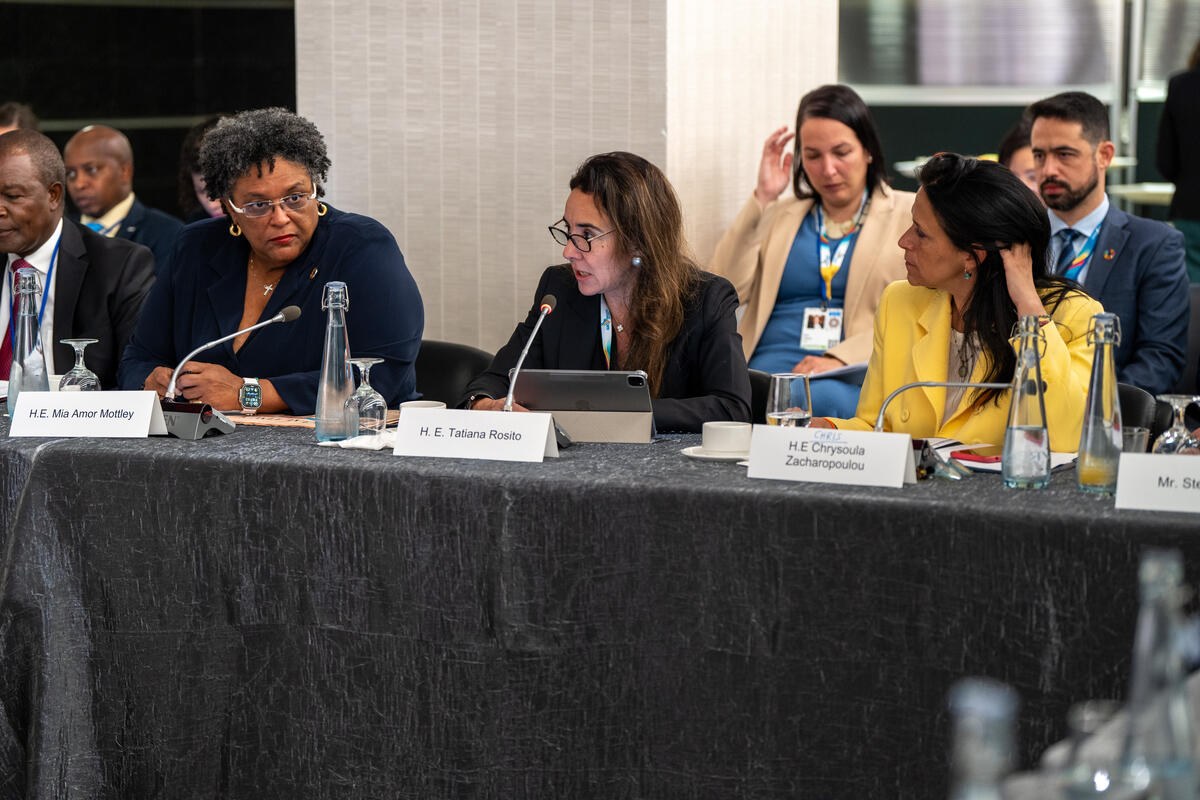A stronger and more responsive financial system: UN expresses support for Brazilian positions at G20
During a meeting in the US, the United Nations, countries and global civil society organizations agreed on the need to build a stronger and more responsive global financial system to deal with growing climate and development challenges. They endorsed proposals to strengthen multilateral development banks.

The United Nations (UN), together with a number of countries and global civil society entities, expressed support for Brasil's proposals presented at a ministerial-level meeting during the IMF and World Bank Spring Meetings. The proposals are part of the country's platform for the G20.
National governments, the United Nations, the African Union and philanthropies present at the meeting discussed how to build a stronger and more responsive global financial system to deal with growing climate and development challenges.
In a joint statement, the signatories demonstrated their support for Brasil's idea of strengthening multilateral development banks, as well as reinforcing the need to re-discuss countries' sovereign debts.
In addition to representatives from the UN, Brasil and Barbados, the joint document was signed by Egypt, Ghana, Kenya, the Philippines and Sri Lanka, the Rockefeller Foundation, Open Society Foundation, Children's Investment Fund Foundation, and Bill and Melinda Gates Foundation.
"To respond to the scale of the crises we are seeing in the developing world, MDBs must dramatically increase the funding available to vulnerable low-income and middle-income countries, while improving operations and better assessing impact," the document points out.
At the event, Ambassador Tatiana Rosito, coordinator of the G20 Finance Track, presented the Brazilian presidency's main proposals for the MDBs, centered on the launch of a Roadmap for better, larger, and more effective Multilateral Development Banks, as mandated by the group's leaders.
The roadmap aims to give more speed, scale, and impact to the work of multilateral banks in support of developing countries' strategies to achieve the Sustainable Development Goals (SDGs) and the Paris Agreement targets. It assumes a greater capacity to leverage private resources, through mechanisms such as blended finance and guarantees, as well as the expansion and better use of these institutions’ capital.
Ambassador Rosito, also Secretary of International Affairs at the Ministry of Finance, highlighted the task forces of the Global Alliance against Hunger and Poverty and against Climate Change established by the Brazilian presidency as a way to urgently mobilize resources.
"This ministerial meeting reflects the bold leadership of Brasil and Barbados [and the growing demand] for global economic reforms to make the 21st century greener, healthier, more prosperous, and more secure, especially for the most vulnerable," said Dr. Rajiv Shah, president of the Rockefeller Foundation. "The Rockefeller Foundation's work with Brasil, Barbados, and many others will continue until we realize a larger, better and more effective system of MDBs required to promote opportunities for all, achieve a green energy transition, and reverse the climate crisis".
Proposals
"To respond to the scale of the crises we are seeing in the developing world, MDBs must dramatically increase the funding available to vulnerable low-income and middle-income countries, while improving operations and better assessing impact," the document points out.
The Brazilian idea is that the MDBs increase the volume of resources applied and operate in a coordinated manner, serving as points of support for each country's strategies for sustainable development and the fight against inequalities, while at the same time increasing the participation of emerging economies and developing countries in their governance.
"It is vital that the MDBs, working together as a system, support the development of national platforms and country-owned investment plans, including technical assistance, coordination, pipeline development, financial structuring, and financing," the text continues.
The document also calls for incremental changes in the way multilateral institutions deal with national debts: "International financial institutions (including the IMF), governments and the private sector must find creative solutions to reduce the debt burden borne by developing countries and free up fiscal space for critical investments in development, climate resilience, and energy transitions."